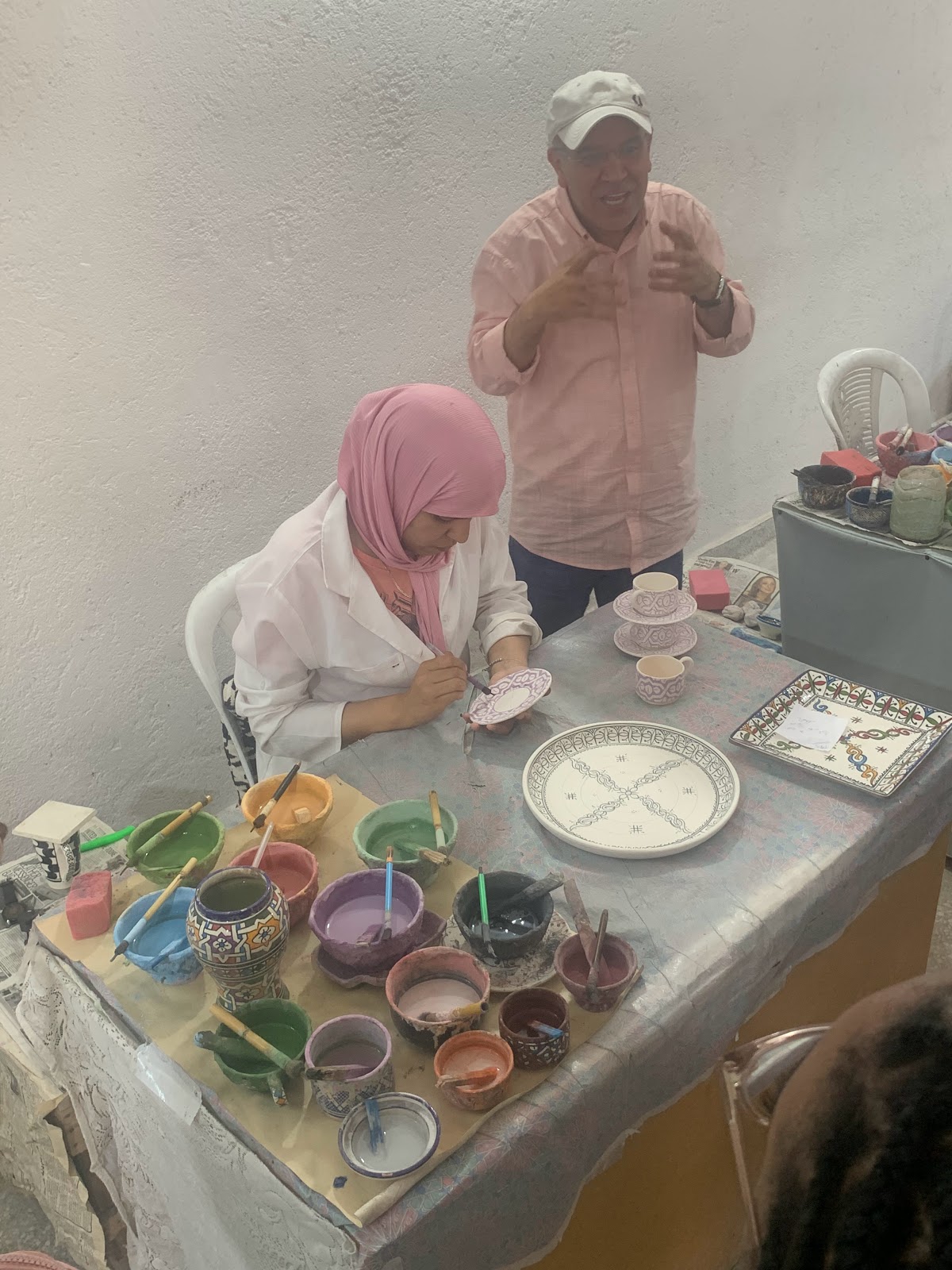In Morocco traditionally we only see men at the face of a business. When at a restaurant, coffee shops, or most businesses you are typically served by men. They are the face of businesses while traditionally women are the back scenes. They are the ones who clean, meal prep, and assemble most of the goods. In Morocco they do not view it as sexism rather than gender roles. Men will do more physical labor that a woman may not want to do and the woman would do handy work a man may not wish to do. They are viewed to each have their own “territory” and the other is not to infringe upon it. During the day this is why we see men out in the streets having tea or coffee and not women. They are not allowed to be home during the day because that is the woman’s space. The woman’s space is called harim. A harim is where women gather and share gossip, news or whatever interests them typically over tea. This is a sacred meeting space. From my American outside perspective however I would by no means consider Morocco a country of gender equality. In this country a man could do any job he wishes but a woman could not. Even if legally a woman was permitted to do any job she would be socially shunned by the population. There also is very little recognition for the labor of women. The men are the face of business so they reap all of the glory. The women are simply just the behind the scenes workers. I have noticed that many of the young girls wish to leave the country of Morocco. We had two younger women join us briefly and one who just graduated high school expressed her desire to leave and the other Mariam lives in Montreal. Aftering speaking with both, they both expressed the inability of self expression for females. Things are changing however, even though it is slow. There are more women than men admitted into higher status universities and a progressive king who is improving gender status. The Moroccan constitution of 2011 states equal rights and protection of those rights for both men and women. There are improved rights also when it comes to marriage, however even though legally things are improving, socially it is slow. There is a current trend here legally of improvement and I am sure more laws are to come to improve upon this, however socially it will take time. A new generation will have to cycle through in order to have lasting societal change in a country like Morocco.
Mariam who lives in Canada to better express herself
The face of business vs the labor




Derek,
ReplyDeleteI appreciate your post and enjoyed reading your connection to the young women you were able to talk to. I would provide an alternative view because I think in some instances we witnessed the women being the "face" of the business. When we visited the leather tannery, the carpet place, and many others we saw the women giving the final price of the items and being over the finances. That portion (finances) is one of the most important parts of those businesses, if not the most important.
I do agree with you on the societal improvements regarding gender that need to take place and was intrigued by your comment about the king. I found an article by Koundouno (2020) that quoted Morocco's ambassador when she said "gender equality and other women-related issues...are at the top of King Mohammed VI's priorities". Although there is a long road ahead, some of the improvements include "a new, liberal-leaning Constitution in 2011", advancements towards equal pay in the work world, and "increase in the number of women holding positions of responsibility in the Moroccan administration" (including the Moroccan Ambassador)(Koundouno, 2020).
https://www.moroccoworldnews.com/2020/09/319932/moroccan-ambassador-gender-equality-a-priority-of-king-mohammed-vi